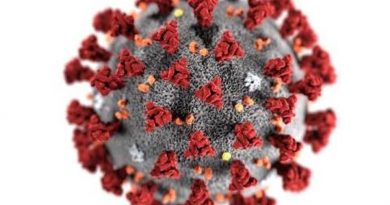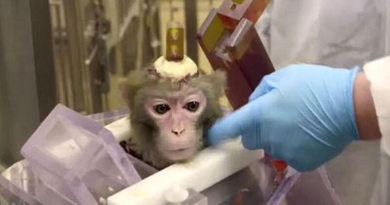Animal “Shortage” not a Problem, but an Opportunity for Change
A few weeks ago, NAVS shared with you their thoughts on recent media coverage indicating that the U.S. doesn’t have enough nonhuman primates to test COVID-19 treatments. In this week’s Science First, they highlighted a recent blog in Impact Ethics about this “shortage” of animals, written by Drs. Andrew Fenton and Syd Johnson.
NAVS is working closely with Dr. Fenton, Associate Professor in the Department of Philosophy at Dalhousie University, and Dr. Johnson, Associate Professor at the Center for Bioethics and Humanities at Upstate Medical University, and other experts on the issue of nonhuman primate experimentation. Dr. Fenton is also helping NAVS develop a white paper on animal research ethics.
They had the opportunity to talk with the pair about COVID-19 and animal research and about what led them to write their blog.
While the research community has viewed the monkey “shortage” as a crisis, the ethicists see this as an opportunity to “think more deeply and critically about the scientific use of animals.”
Dr. Johnson told NAVS that she “was struck by the way the so-called monkey shortage was being framed, as if monkeys are just another piece of lab equipment, and this was just another COVID-related shortage, like PPE and ventilators. Aside from the harms and ethical wrongs that are done to monkeys in biomedical research, viewing them as mere things or tools can lead scientists to overlook an opportunity to work in creative and innovative ways that do not involve animals.”
As a result of the pandemic, China stopped exporting monkeys bred for research purposes. Scientists then developed creative ways to reduce the number of monkeys used in research protocols. Since these steps are being implemented now, during the pandemic, the authors noted that one must question the need for the high number of primates used before the pandemic. It is clear that more animals were being used than was necessary, even though researchers are always asked to implement “reduction” of animal use into their protocols (in line with the “3R’s” principles of refinement, reduction and replacement of animal use).
The authors also lament the fact that, although no one animal model has the range of severity of COVID-19 symptoms seen in humans, they still see researchers trying to make these models work.
“I’ve been troubled by attempts to adapt the virus to some models or adapt some models to the virus,” Dr. Fenton told us. “When adapting the virus to some models, so that it more readily infects them and makes them sick, it’s no longer clear to me that we’re talking about COVID-19 models … Attempts to adapt models to the virus are attempts to ‘humanize’ the models.”
Rather than continue down this path, Drs. Fenton and Johnson see this as an opportunity to create better models that do not rely upon animals.
“Using animals as proxies for humans is using centuries-old technology,” said Dr. Johnson. “Thinking outside the animal research paradigm might actually transform vaccine research for the better and ultimately benefit animals and humans.”
We couldn’t agree more. Using human-relevant research models is essential to finding safe and effective treatments for human conditions like coronavirus infection. We will continue to keep you posted on the progress that researchers make using these human-relevant tools in their efforts to combat the virus.
We thank Drs. Fenton and Johnson for taking the time to speak with us and for working with NAVS on this important ethical issue.
_________
Source: Fenton, A. and Johnson, L. Syd M. “COVID-19 animal research reveals ethical shortcomings,” Impact Ethics. September 25, 2020.
From NAVS: Advancing Science without Harming Animals, Science First.




